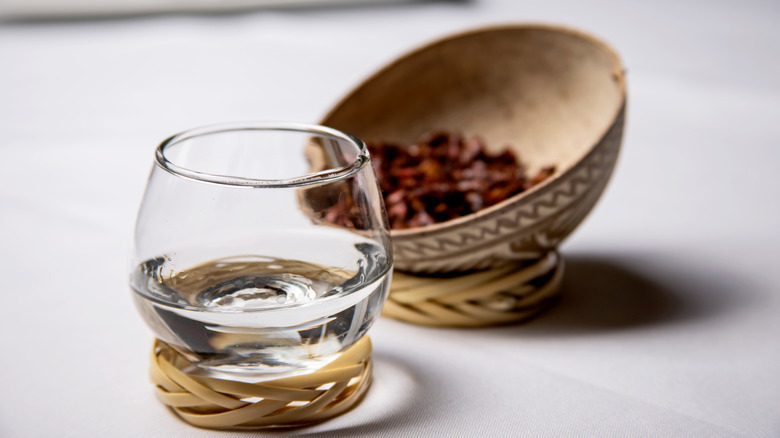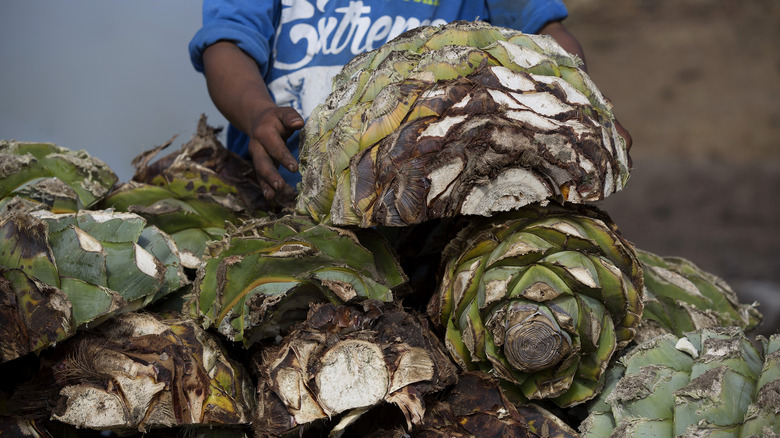The Real Reason Mezcal Is So Expensive
Good things come to those who wait, and mezcal — which is defined as "any agave-based liquor," according to Food and Wine — is one of those things.
Mezcal, which differs from tequila in the production process and the agave used to make it, tends to be a spendy spirit, often out-pricing even top-shelf tequilas (via Thrillist). This price tag comes from the fact that the agave plants used to make mezcal can take extremely long periods of time to reach their peak. As Thrillist notes, it can take espadín agaves, which are common varieties used to produce mezcal, anywhere from seven to 14 years to grow to harvest size. Other types of agave, such as tobala or tepeztate, can take 17 to 35 years. This extended grow time correlates to a pricier final product.
Agave for mezcal takes a long time to grow, but this is only the beginning of the mezcal production process. Harvesting the crop, according to Thrillist, is extremely labor-extensive.
Arduous production pushes up mezcal's cost
Each agave plant destined for mezcal is removed from the ground by hand, often using traditional tools such as a machete and some muscle instead of high-tech equipment, according to Thrillist. Mezcal is made using the core of the agave plant, known as the piña, and removing it from the ground is no easy task.
Even after all this work, the actual production process hasn't even begun. Thrillist explains that traditional mezcal making involves first roasting the piña in deep, rock-lined pits dug into the ground. The piña is buried in these pits along with hot embers for up to four days to achieve the desired toastiness. Only after unearthing the piña and mashing it, says Thrillist, can the fermentation process begin. In addition to an arduous production, mezcal's prices reflect an expensive exporting process, due to it being made in smaller quantities at smaller distilleries, per Travel Distilled.
So before gawking at this spirit's price tag, remember all the hard work by the masterful hands who got it from farm to bottle.

